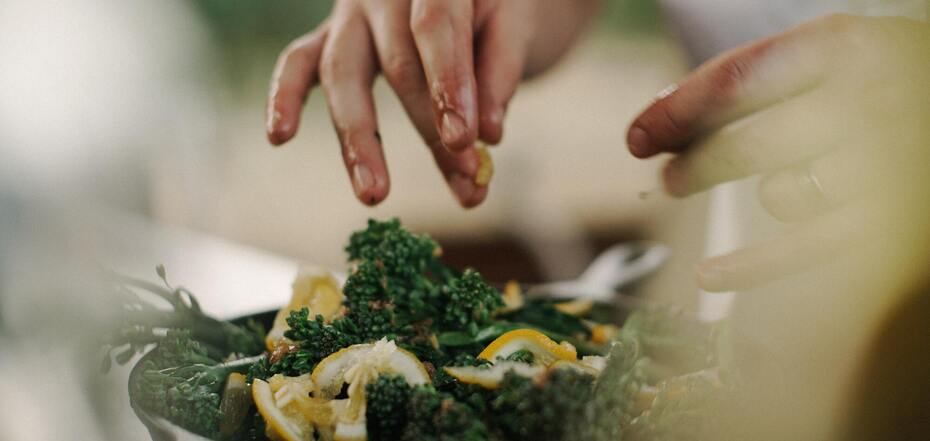LS Food
How to cook food properly: 7 tips that will be useful to everyone
There are many nuances in cooking that, if ignored, can result in a tasteless dish or even ruin it completely.
FoodOboz editorial team gives some tips that will definitely come in handy in the kitchen and improve the taste of your food.
Here's the first tip. Use spices instead of salt
If the food seems too bland to you, don't try to adjust the taste with salt. Try playing with spices first: use dried herbs, spices, and seasonings. Add lemon juice, garlic, and vinegar to the dish, as well as celery, cilantro, oregano, tarragon, basil, parsley, cumin, cumin, rosemary, and mustard. Tomatoes, both fresh and sun-dried, can also "refresh" the taste.
Tip two. Do not overheat the oil
Yes, oil can be heated, but some types - such as sunflower or coconut oil - start to burn at very high temperatures. If the oil in the pan starts to smoke, just know that it not only loses its beneficial properties, but also releases carcinogens that are dangerous to health. And as a result, your dish can acquire an unpleasant bitterness.
Tip number three. Don't cook vegetables for too long
Scientists at the University of California claim that heat treatment destroys water-soluble vitamins C and B, as well as a group of nutrients known as polyphenols. Depending on the cooking method, losses can range from 15 to 55%. The fat-soluble vitamins A, D, E and K and the antioxidant carotene are better able to withstand high temperatures - but only when it comes to boiling or steaming. When frying in a skillet, virtually nothing of the nutrients in vegetables remains. To get the most out of your vegetables, it's best to eat them raw.
Tip number four. Do not peel all fruits and vegetables
The peel of some fruits and vegetables contains the bulk of the nutrients. For example, potato peels are 50% dietary fiber, which satisfies hunger and helps food move through the digestive tract. Apple peels contain almost the entire supply of quercetin, an antioxidant that prevents the development of cancer. And the fluffy skin of kiwi is a rich source of vitamin E and flavonoids.
Tip number five. Do not melt honey
We all know that honey undergoes a natural crystallization process and acquires the consistency of a thick paste. At the same time, it does not lose its beneficial properties and can be stored in this form for years, remaining tasty and flavorful. However, many people melt it in a saucepan or in the microwave to return it to its liquid form. Do not do this. When heated above 40 degrees, honey begins to quickly lose its unique properties and you end up with just a high-calorie syrup.
Tip six. Soak the potatoes
In 2015, a report by the EU Food Safety Agency named foods containing a dangerous carcinogenic substance, acrylamide. Potatoes were included in the list. Science knows that its level increases dramatically when starchy foods are fried or baked at high temperatures. By the way, prolonged storage of the finished potato dish also contributes to an increase in acrylamide levels. Experts advise soaking peeled potato tubers for 2 hours before cooking them.
Tip number seven. Do not use raw salt
We all know that salt is harmful, retaining fluid in the body, which causes puffiness. To reduce its harm, experts advise not to use it in its "raw" form: dissolving during the cooking process and exposed to high temperatures, the mineral causes less damage to the kidneys, blood vessels and lymphatic system.



























